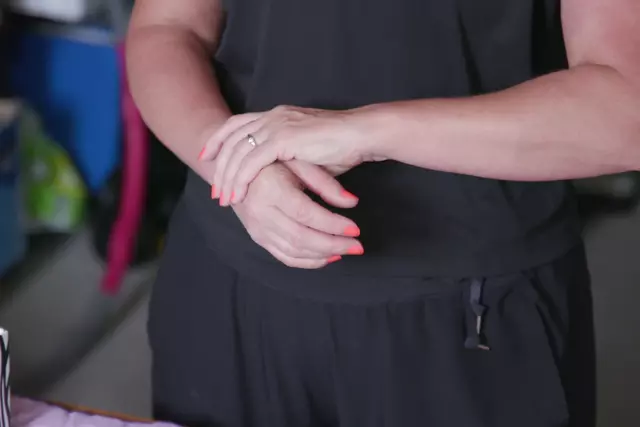Motor Symptoms In Parkinson’s Disease : The Role Of Physical Therapy In Managing Symptoms
Parkinson’s disease has predominant motor symptoms that are usually the identifying factor for the health care provider. The disease is usually diagnosed by motor symptoms as it is seen outside. Motor symptoms simply mean the movement is affected. Motor symptoms exhibited by the patient are also known as the classical triad as these are the primary symptoms in Parkinson’s.
Motor Symptoms
The motor symptoms in PD are said to be caused by disturbances in the neural structures that are responsible for movement, coordination and action. The motor symptoms of PD include:
- Tremor
- Muscle stiffness
- Slowness of movement
Apart from these there are a range of motor symptoms the patient will experience. The symptoms usually differ from person to person and not all the symptoms at the same time.
Parkinson can also be confused with other movement disorders but your doctor confirms it when he sees a combination of motor symptoms, slowness of movement with tremor or rigidity.
Classical Triad
Tremor
Patients with PD usually experience slight tremor in the early stages. The tremor usually develops during rest and so is called the resting tremor. Tremor usually occurs in the hands and is described as pill rolling but may also happen in other regions like the jaw and leg.
The resting tremor usually eases when attempting to do an action or during sleep. It usually begins on one side of the body but as the disease progresses it affects both sides of the body. Stress and anxiety are known to aggravate tremor.
Muscle stiffness/Rigidity
Muscle stiffness or rigidity is the one of the most prominent symptoms in Parkinson’s. The stiffness of the muscles of the shoulder, neck and limbs are commonly observed in PD. This means the range of motion is limited causing the muscle to remain stiff and not relaxed. Rigidity can be very uncomfortable and painful at times. Stiff hands and legs may cause problems in balance during walking and other motor activity.
Slowness of movement/bradykinesia
Slowness of movement/bradykinesia displays as a reduction in the speed of the task while performing it. Sometimes it can be identified as a difficulty in initiating a movement. PD is usually diagnosed when you have bradykinesia with either tremor or muscle stiffness. Slowness of movement may occur at any time of the day like when you are cutting a vegetable, brushing your teeth or dressing yourself up and it can be very frustrating.
Managing motor symptoms
Tremor
Medications like levodopa are usually given to keep the tremors under control but physical therapy exercises provide long term benefit in managing tremor.
- LSVT BIG exercises are specially formulated to deal with motor symptoms in Parkinson. These exercises are specifically designed to treat Parkinson’s symptoms. Your therapist will create an effective treatment plan to manage your symptoms.
- Relaxation exercises are taught as tremor increases with stress and anxiety. You can sit in a quiet environment and practice deep breathing exercises to induce relaxation.
- You can squeeze soft balls to reduce your hand tremor and strengthen your fingers.
Slowness of movement/Bradykinesia
Exercise plays an important role in managing bradykinesia to gain motor control.
Warm up exercises and stretching usually prove effective before initiating an activity. This helps in fast processing while sustaining coordination during any physical activity. Occupational therapy is also said to be effective in treating bradykinesia as it focuses on energy management techniques.
Muscle stiffness/Rigidity
Keeping yourself Physically active will help to strengthen muscles and improve flexibility. Your therapist will teach you stretching and exercises to relieve muscle pain and stiffness.
You can also do simple exercises like going up and down on toes (toe standing), walking down the hall with arms swinging, sitting on a chair and turning side to side to relax the muscles.
A note from Balanced Gait Physical Therapy
Physical therapy promises a care that can last a long time in patients with PD. Your therapist will teach you safe methods and exercises to be carried out at home to overcome your motor and other symptoms. Exercise therapy aims to build your confidence and make your movement easier. Your day-to-day activities are made easier to perform with tailored exercises.
References
1.https://www.parkinsons.org.uk/information-and-support/motor-symptoms-parkinsons#:~:text=Motor%20symptoms%20affect%20your%20movement,stiffness%20and%20slowness%20of%20movement.
2.https://pubmed.ncbi.nlm.nih.gov/27422450/#:~:text=We%20argue%20that%20various%20motor,%3B%20Rigidly%3B%20Speech%3B%20Tremor.
3.https://parkinsonsdisease.net/symptoms/motor
4.https://parkinsonsnewstoday.com/parkinsons-disease-symptoms/motor/
5.https://www.parkinson.org/understanding-parkinsons/movement-symptoms/tremor

